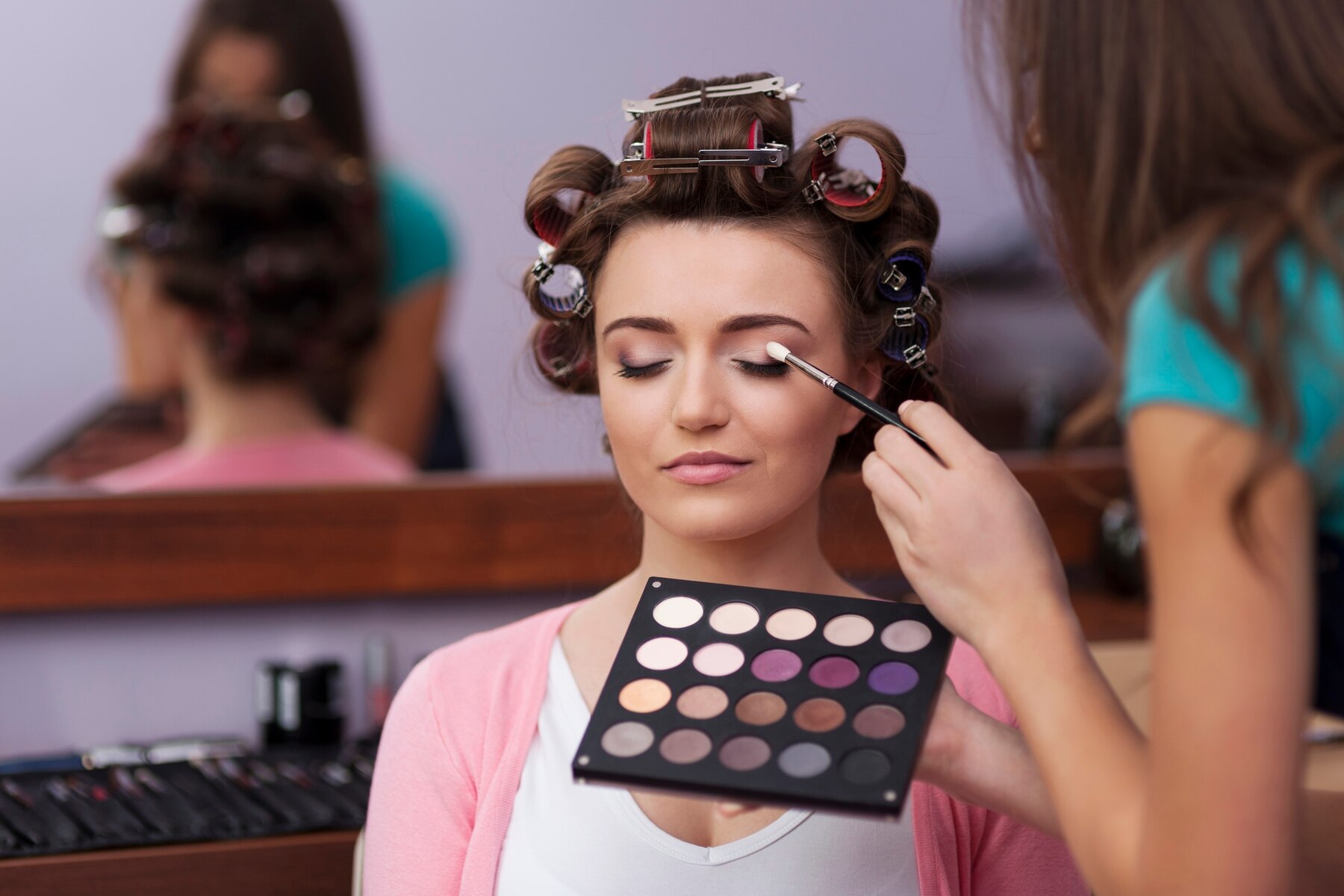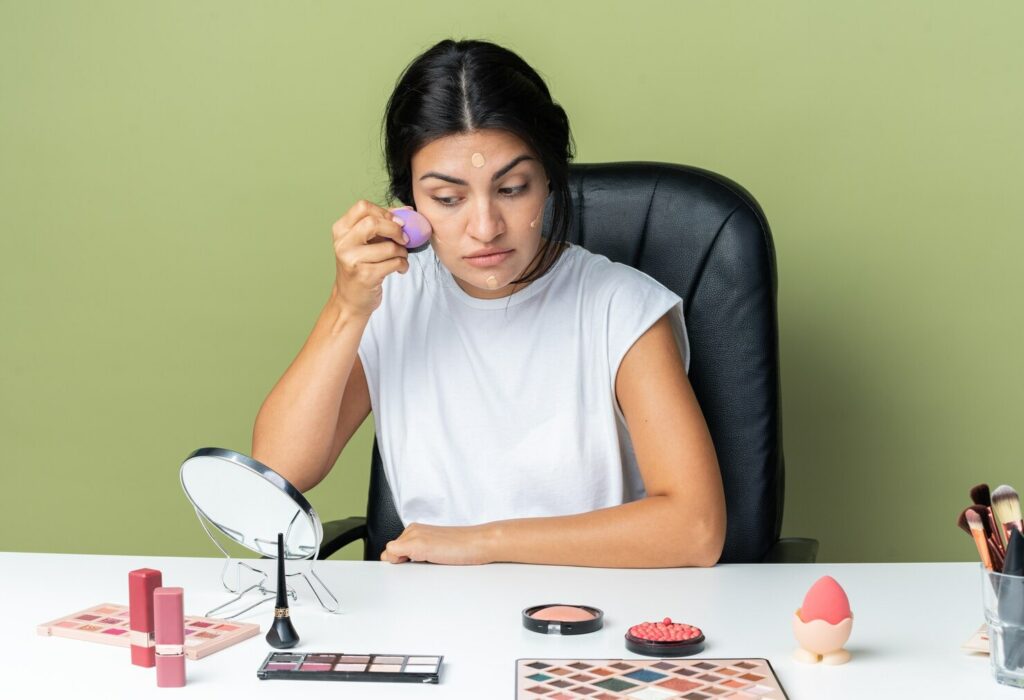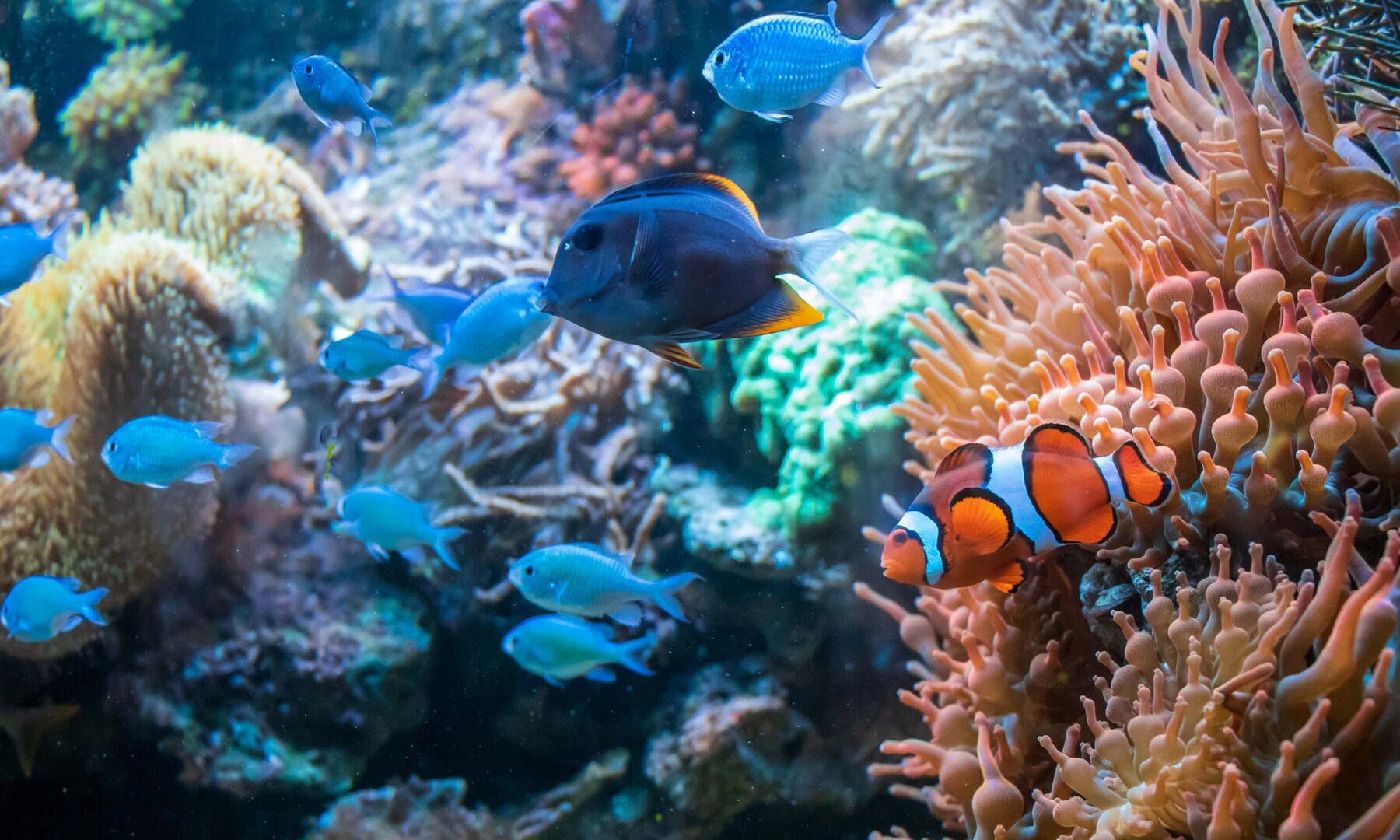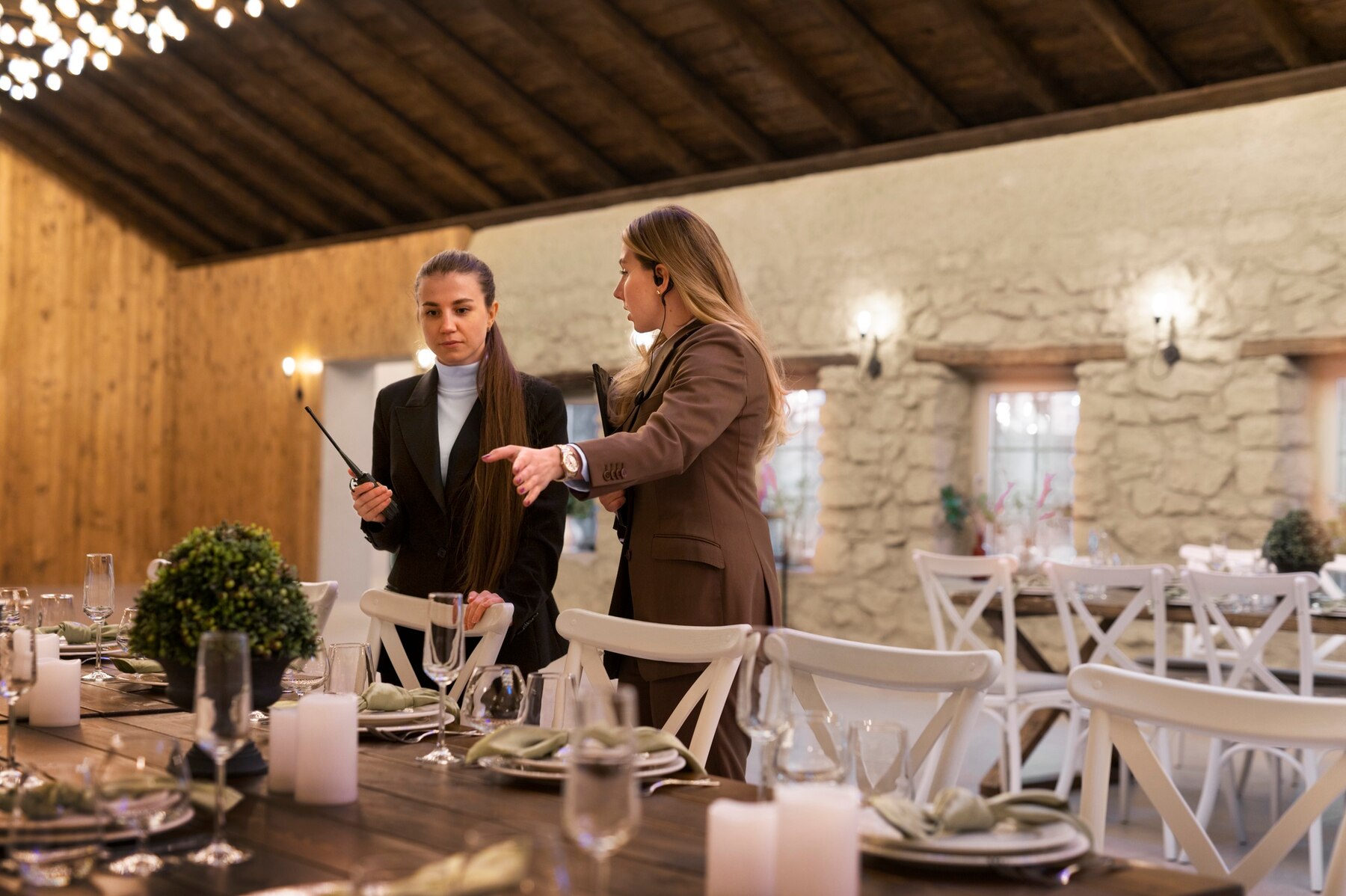A makeup artist is a professional skilled in the art of enhancing, altering, or beautifying an individual’s appearance using cosmetic products and techniques. Here’s a detailed overview of what a makeup artist does:
Consultation: Before starting any makeup application, a makeup artist typically consults with clients to understand their needs, preferences, and the purpose of the makeup, whether it’s for a special event, a photo shoot, or daily wear.
Skin Preparation: They prepare the client’s skin by cleansing, moisturizing, and applying a primer to ensure smooth makeup application and longevity.
Color Matching: A crucial skill involves matching foundation, concealer, and other face products to the client’s skin tone to achieve a natural look.
Application: Depending on the client’s needs, they apply a full face of makeup. This can include foundation, concealer, eyeshadow, eyeliner, mascara, blush, highlighter, lipstick, and more.
Specialized Techniques: Makeup artists use various techniques such as contouring, highlighting, and blending to achieve desired effects and enhance facial features.
Special Effects: Some makeup artists specialize in special effects makeup, which includes creating prosthetics, scars, aging, or other effects for movies, theater, or Halloween events.
Event-Specific Makeup: Makeup artists can specialize in specific events like weddings, fashion shows, photo shoots, or film and TV production, tailoring their techniques and products to the occasion.
Education: They often educate clients on makeup application techniques, skincare routines, and product recommendations.
Sanitation: One of the most crucial responsibilities is maintaining a clean and sanitized set of tools, products, and workspace to ensure client safety.
Product Knowledge: They stay updated on the latest products, trends, and techniques in the beauty industry. This often involves attending workshops, product launches, and trade shows.
Building a Portfolio: To showcase their skills to potential clients or employers, makeup artists often maintain a portfolio of their work, which includes high-quality photographs of their makeup applications.
Collaboration: Makeup artists often collaborate with other professionals such as hairstylists, fashion designers, photographers, and directors to achieve a cohesive look or theme for projects or events.
In essence, a makeup artist is a blend of an artist, consultant, and educator, dedicated to making individuals look and feel their best while ensuring the makeup aligns with the specific requirements of an event or project.





